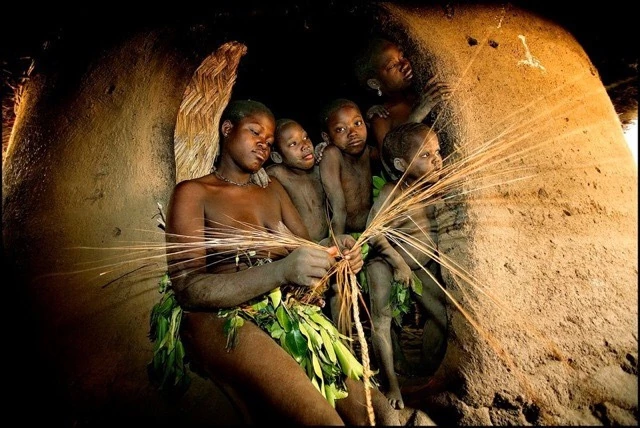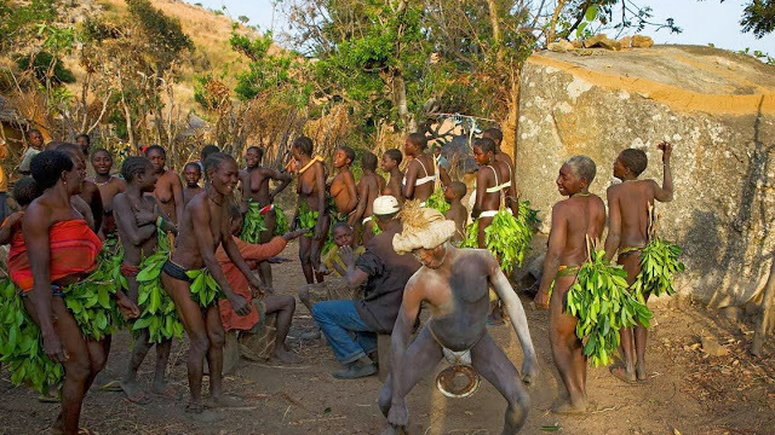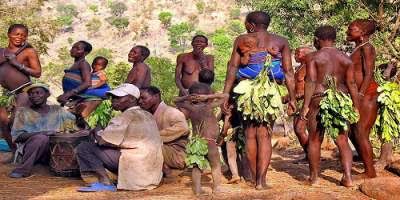Trends
See The Naked Tribes in Nigeria, where indigenes wear only leaves
Despite widespread civilization in Nigeria, the people of Kambari, Jibu and Koma, naked tribes in Nigeria wear only leaves to preserve their age-long culture.

It is amazing that there are a few tribes in Nigeria that have firmly resisted western influence; they have managed to preserve their culture.
Arguably, regardless of whatever theory of civilization and the birth of man you know or believed in, the earliest man had no clothing on.
From the theory of evolution, the man who developed from apes wandered and roamed naked until the need to keep warm and cover-up arose. Centuries later, almost everyone on earth is civilized and has adopted the use of various means of covering nakedness.
Citing from the biblical angle, it wasn’t until after the eating of the forbidden apple that the first man sort clothing for their nakedness.
Nudity goes as far back as the Biblical Garden of Eden but the world has evolved ever since. Even with the incursion of European civilization, nudity is still a thing. Modern clothes are now designed to express nudity as a form of fashion choice.
However, these tribes completely rejected the influence of the western world and wears only leaves that barely cover their body to preserve their age-long culture.
Discovery of The Naked Tribe in Nigeria
These naked tribes were discovered in Nigeria in 1986 by a corps member in the then-Gongola State of Northern Nigeria, a Nigerian newspaper, The Spectator reported in July 2010.
They were officially recognized as Nigerians in 1961 and now have 17 villages on the Nigerian side. The naked tribes in Nigeria are hill-dwelling people who live in the Alantika Mountains, spanning the border between the southeast of Yola, the capital of Adamawa State in Nigeria, and Northern Cameroon.
They cook with fire made with flint. And the majority of them depend on farming, hunting and gathering forest products like bananas, locust beans and canarium used for body lubrication.
They buy farming implements and scarce items of clothing used by men on ceremonial occasions from the Fulani, Bata, Chamba and other tribes in the lowlands.
Importantly, once their boys and girls turn about 14 and 17, both sexes undergo puberty rituals (circumcision for boys and extraction of two of the incisors for girls).
Thereafter, they are free to interact before making their conjugal intentions known to their parents with reciprocal token gifts, a farm or garden plot works.
If permitted, the man pays the bride price with goats, chickens and some token cash of about two Naira.
Other make tribes in Nigeria are the Kambari in Niger state and the Jibu people of Taraba state.
RECOMMENDED


